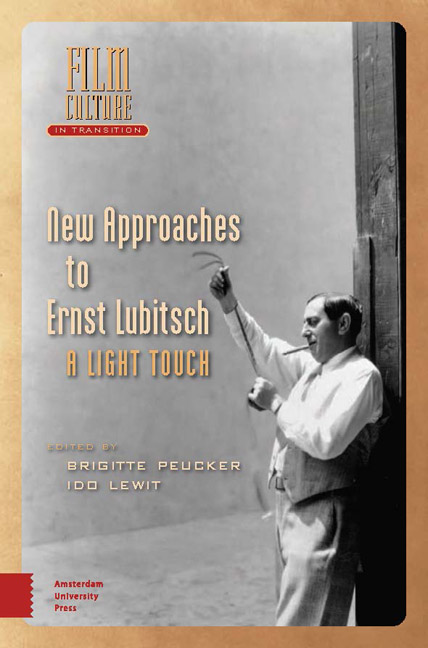11 - Ninotchka: Pleasure and Politics Objectified
Published online by Cambridge University Press: 16 April 2024
Summary
Abstract
In Lubitsch's romantic comedy Ninotchka (1939), objects are dynamic agents, acting upon characters’ desires, expressing political values, and shifting loyalties. Kremlin envoy Ninotchka personifies totalitarian repression, whereby any type of worldly desire is a bourgeois failing, but in Paris she falls in love with Count Leon d’Algout, the kept companion of former Imperial Grand Duchess Swana. Fine art, fashion, propaganda posters, and political portraits express competing desires and values. The clash of capitalism and communism, Ninotchka's competition with Swana and internal struggle are all reflected by decor, art, and costume, especially—a consummate Lubitsch touch—by an absurd hat.
Keywords: communism, capitalism, art, objects, hat
Ninotchka (Lubitsch, 1939) is a testament to two ineffable wonders of the Hollywood studio system: Greta Garbo and the “Lubitsch Touch.” In their only outing together each risked a bit of novelty. “The Divine” had been declared box office poison in 1938 and consented to stick her lovely neck out in a comedy. “Garbo Laughs” is the famous tagline with which MGM promoted the film. Ernst Lubitsch was, of course, famous for romantic comedy but had never taken on a story so topical and political, a parable about the clash of communism and capitalism, as embodied by two lovers and a host of material objects—an exquisitely impractical hat, contested royal jewels, artworks, portraits, and many other elements of costume and decor. Ninotchka displays considerable knowledge of Stalinist Russia—its art and repression—as well as contemporary Parisian art and fashion, lending this classic comedy an undercurrent of critical realism.
The encounter between capitalist luxury and communist austerity is gendered but not in the expected manner. The noble but relatively impecunious Count Leon d’Algout (Melvyn Douglas), a pleasure-seeking gigolo, represents an idle Paris where haute couture trickles down to everyday chic, food and drink are to be savored, and electricity is “wasted” on atmospheric sparkle. On the other hand, Ninotchka's androgyny (which is Garbo’s) represents Moscow with its fierce winters, athleticism, and Spartan conditions, a steeliness stereotypically seen as masculine.
Lubitsch would have known of the Soviet State's repression of material desires firsthand. In 1936, not long before he made Ninotchka, he had traveled to Moscow, a trip mysteriously cut short, and about which he remained uncharacteristically mum.
- Type
- Chapter
- Information
- New Approaches to Ernst LubitschA Light Touch, pp. 211 - 228Publisher: Amsterdam University PressPrint publication year: 2024



